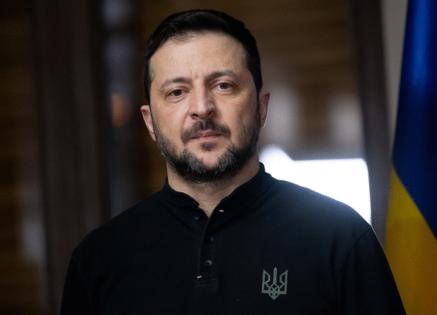What's next on Russia sanctions if Putin balks at ceasefire call
Published in News & Features
With European leaders calling for a 30-day ceasefire in the war in Ukraine starting Monday and claiming President Donald Trump’s support for the ultimatum, the possibility of additional sanctions on Russia is moving into focus.
Ukrainian President Volodymyr Zelenskyy said Saturday that his Russian adversary Vladimir Putin would face new punitive measures on energy and the financial sector if he doesn’t comply. The Kremlin dismissed the threat, which jibes with a shift by Trump to a harsher line toward Russia.
The U.S. and its allies have imposed thousands of sanctions on Russia since its full-scale invasion of Ukraine in February 2022 and Trump has repeatedly toyed with targeting oil from Russia, one of the three largest crude producers. Here’s a look at potential next steps:
—U.S. officials have prepared options for Trump to increase economic pressure on Russia, Bloomberg reported on May 2. Trump threatened further sanctions by the U.S. and its partners in a social post Thursday if “the ceasefire is not respected.”
—The European Union is considering new measures against Russia’s covert fleet of oil tankers, including restrictions on some 150 additional vessels. The draft includes Litasco Middle East DMCC, a Dubai-based trading unit of Russian oil giant Lukoil PJSC, according to documents seen by Bloomberg News.
—In the U.S. Senate, Trump ally Lindsey Graham said last week he has wide bipartisan backing for a bill to enact “bone-crushing” further sanctions, including a 500% tariff on imports from countries that buy Russian energy products and a ban on U.S. citizens’ buying Russian sovereign debt, according to a draft. Graham called the bill “a tool in President Trump’s toolbox” should he decide “that we’ve reached an impasse.”
—Days earlier on April 26, Trump mused that Putin may be stringing him along and said that might require penalties on banking or so-called secondary sanctions — a reference to punishing countries that do business with Russia.
—In late March, Trump threatened what he called secondary tariffs on buyers of Russian oil after Putin cast doubt on Zelenskiy’s legitimacy as a negotiating partner, only to ease off shortly afterward.
—The Trump administration also has hinted it could support easing sanctions as a potential bargaining chip to lessen Russia’s isolation from the West. Moscow’s demands include allowing the Russian Agricultural Bank to reconnect to the SWIFT payments system, though that’s under the EU’s jurisdiction and the bloc has given no indication it’s willing to relax sanctions.
—A White House official said Trump has repeatedly said the U.S. will help ensure a durable peace if both sides agree to a ceasefire, while putting economic sanctions on the table if they don’t.
©2025 Bloomberg L.P. Visit bloomberg.com. Distributed by Tribune Content Agency, LLC.







Comments